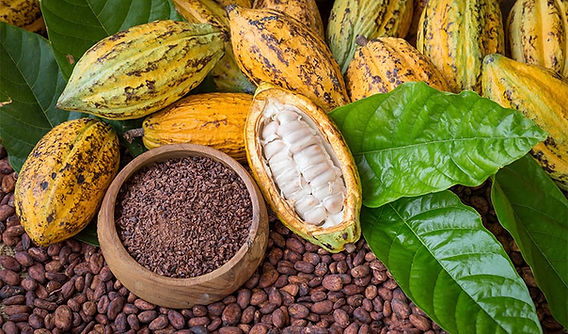Cocoa is one of Nigeria’s most valuable agricultural exports and a major source of income for thousands of farmers, especially in the southern regions.
The country is one of Africa’s top producers, with several states contributing significantly to national output.
Below are the top ten cocoa producing states in Nigeria and what makes each of them stand out:
1. Ondo State
Ondo State remains Nigeria’s largest cocoa producer, accounting for a major portion of the country’s total output.
The fertile soil and favourable weather conditions make cocoa farming a lucrative venture in areas like Idanre, Ile-Oluji, and Owo.
The state government and private investors have continued to support cocoa farmers with improved seedlings and processing facilities, keeping Ondo at the top of Nigeria’s cocoa map.
2. Cross River State
Cross River is fast emerging as a key player in cocoa production, thanks to its vast arable land and government-driven agricultural initiatives.
The state’s cocoa farms are concentrated in Ikom, Boki, and Etung areas, producing high-quality beans.
3. Osun State
Osun State has a long history of cocoa cultivation dating back to the colonial era.
The crop remains a vital part of its rural economy, particularly in towns like Ife, Ilesha, and Ila.
Many family-owned farms continue to thrive, with the state government encouraging youth participation in cocoa farming through empowerment programmes.
4. Ekiti State
Ekiti’s lush forests and consistent rainfall provide ideal conditions for cocoa farming.
Communities in Ise-Ekiti, Ikere, and Efon Alaaye are known for their thriving plantations.
The state has also partnered with agricultural cooperatives to boost yield and promote local cocoa processing for export.
5. Ogun State
Ogun State plays a strategic role in Nigeria’s cocoa value chain.
Beyond cultivation, it benefits from proximity to Lagos ports, making export logistics easier.
Cocoa is mainly grown in areas like Ijebu East, Odeda, and Obafemi Owode.
The state’s growing interest in agribusiness has attracted both local and foreign investors to its cocoa sector.
6. Oyo State
Oyo has a rich agricultural heritage, and cocoa remains one of its main cash crops.
The crop is cultivated in regions such as Ibadan, Ibarapa, and Ogbomoso.
Although production levels have declined slightly over the years, efforts to revitalise old plantations and introduce modern farming methods are restoring Oyo’s cocoa output.
7. Edo State
Edo State’s cocoa industry is concentrated in areas like Uhonmora, Owan West, and Etsako.
The state government has invested heavily in improving agricultural productivity and training farmers in sustainable practices.
With renewed focus on export-oriented farming, Edo is gaining recognition as one of the fastest-growing cocoa states.
8. Delta State
Delta State’s cocoa farms are primarily located in the central and northern parts, such as Ughelli and Kwale.
The tropical climate and fertile soil contribute to the production of premium-quality cocoa beans.
The state’s agricultural policies now aim to boost value addition by supporting local processing industries.
9. Abia State
Abia State is one of the few southeastern states known for cocoa production.
The crop is cultivated in areas like Umuahia and Bende, where farmers have embraced improved hybrid varieties to increase yield.
Abia’s government has been promoting partnerships with private investors to strengthen the cocoa value chain.
10. Akwa Ibom State
Though better known for oil and gas, Akwa Ibom has been quietly building its presence in cocoa farming.
The state’s plantations in Ikono, Itu, and Abak are expanding as more farmers diversify into the crop.
With proper investment and support, Akwa Ibom could become a major cocoa producer in the near future.
Cocoa production continues to play a vital role in Nigeria’s non-oil economy.
With renewed focus on agriculture and agro-processing, these ten states are not only driving export growth but also empowering rural communities and creating sustainable livelihoods.

